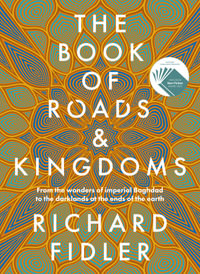The conflict between science and religion seems indelible, even eternal. Surely two such divergent views of the universe have always been in fierce opposition? Actually, that's not the case, says Peter Harrison: our very concepts of science and religion are relatively recent, emerging only in the past three hundred years, and it is those very categories, rather than their underlying concepts, that constrain our understanding of how the formal study of nature relates to the religious life. In The Territories of Science and Religion, Harrison dismantles what we think we know about the two categories, then puts it all back together again in a provocative, productive new way. By tracing the history of these concepts for the first time in parallel, he illuminates alternative boundaries and little-known relations between them'thereby making it possible for us to learn from their true history, and see other possible ways that scientific study and the religious life might relate to, influence, and mutually enrich each other.A tour de force by a distinguished scholar working at the height of his powers, The Territories of Science and Religion promises to forever alter the way we think about these fundamental pillars of human life and experience.
Industry Reviews
"A well-researched, richly detailed argument for how the epistemological map of nature in the West was radically redrawn in the passage to modernity, sharply distinguishing facts from values in the creation of the specifically modern territories of science and religion. . . . The Territories of Science and Religion helps us rethink the origins of the key modern categories of science and religion, and in doing so provides a new vantage point on the rise of modernity. If you happen to be new to Harrison's work, this tome will leave you searching for more by this fine scholar."-- "Reading Religion"
"The Territories of Science and Religion is relevant as a study of semantic change, and to the field of conceptual history. Obviously, it is also relevant in the history of science, the history of religion, and the history of the various intersections of these categories....An impressive and welcome work. The straightforward narrative of the book also makes it a great read."-- "Contributions to the History of Concepts"
"[Harrison's] is a careful and nuanced scholarship, which is precisely why it doesn't get much play in a public discourse invested in the clickbait of the conflict metaphor. In Territories, first presented at the 2011 Gifford Lectures in Edinburgh, Harrison builds on his previous work to take on the new atheist 'conflict' party more directly. The bulk of the book is a patient, fine-grained archaeology of the terms 'science' and 'religion.' Indeed, in some ways, Harrison has written a biography of these concepts."-- "Los Angeles Review of Books"
"A bare-bones summary of Harrison's argument hardly does justice to its
originality and subtlety, nor to the arresting insights that he derives from wellchosen
examples....Impressive chronological scope and erudition."-- "Journal of the American Academy of Religion"
"Classical thinkers understood scientia and religio as qualities or virtues; beginning around the 16th century, however, the meanings gradually shifted such that both were understood as entities conceived in terms of doctrines and practices. This shift, Harrison contends, was the precondition for modern conflicts between science and religion. Considering important turning points in a long swath of Western history from the classical world to the present, Harrison analyzes past activities connected to our present understanding of these terms, including natural philosophy, theology, belief, and doctrine. Arguing cogently and persuasively on a vital topic, The Territories of Science and Religion is a much-needed scholarly work."-- "Ann Taves, University of California, Santa Barbara"
"Contemporary debates would lead you to believe that science and religion are eternally at odds with each other. In The Territories of Science and Religion, Harrison interrogates the modern assumptions behind this viewpoint and delineates the story of the categories science and religion. He shows that understanding these concepts divided as distinct realms of inquiry is a relatively recent history, politically shaped, and often accidental in its construction. In reality, what we conceptualize as these two separate spheres of life were intimately bound up with one another, often in concert in social life. Harrison also warns us about the consequences of projecting our contemporary conceptual spheres back through the past. In our conversation we discuss ancient Greek philosophy, early Christian thought, natural theology and natural philosophers, conceptions of progress, forms of charity, the professionalization of science, and the creation of scientists."-- "New Books Network"
"Harrison's The Territories of Science and Religion is a subfield-defining book. It decisively demonstrates that presuming either conflict or collaboration between science and religion is premature: a preliminary to any exploration of those connections must begin with a recognition that we do not know what those terms mean, and that the jumble of meanings that we have inherited have been clumped together in starkly different ways throughout the history of western thought."-- "Marginalia"
"Harrison's new book, Territories of Science and Religion is essential reading. It is the most important study of the history of science and religion since the publication in 1991 of John Brooke's Science and Religion: Some Historical Perspectives."-- "Science & Religion: Exploring the Spectrum"
"Learned, lucid, and illuminating, Peter Harrison's analysis of scientia and religio from antiquity to the present shows how their non-linear transformation from interior virtues to exteriorized bodies of knowledge made possible the creation of the later nineteenth-century myth about an allegedly timeless 'conflict between science and religion.' One hopes that not only historians of science and religion but also contemporary perpetuators of the myth read and learn from this book."-- "Brad S. Gregory, author of The Unintended Reformation: How a Religious Revolution Secularized Societ"
"Simply put, Peter Harrison's The Territories of Science and Religion is the most significant contribution to the history of science and religion since the appearance of John Hedley Brooke's landmark study, Science and Religion: Some Historical Perspectives, nearly a quarter-century ago. Drawing on his wealth of historical, philosophical, and linguistic knowledge, Harrison provides a fresh, authoritative introduction to this still all-too-often misunderstood topic."-- "Ronald L. Numbers, University of Wisconsin-Madison"
"The complexities of ancient attitudes toward our cherished practices, which we assume had to be valued by all reasonable ages, can be found admirably laid out in Peter Harrison's invaluable new tome, The Territories of Science and Religion. Harrison's book deserves a place right next to all your most important critiques of modernity and genealogies of secularization."-- "Patheos"



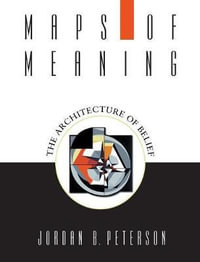








![NRSV Catholic Bible Gift Edition [Teal] : Holy Bible - Thomas Nelson](https://www.booktopia.com.au/covers/200/9780785230410/9912/nrsv-catholic-bible-gift-edition-teal-.jpg)
![NRSV Catholic Bible Gift Edition [White] : Holy Bible - Thomas Nelson](https://www.booktopia.com.au/covers/200/9780785230380/2211/nrsv-catholic-bible-gift-edition-white-.jpg)
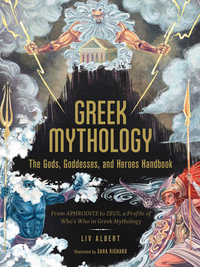
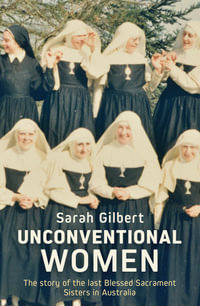
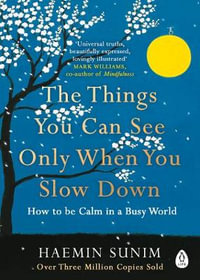




![When Things Fall Apart : Heart Advice For Difficult Times [Thorsons Classics edition] - Pema Chodron](https://www.booktopia.com.au/covers/200/9780007183517/5907/when-things-fall-apart.jpg)


